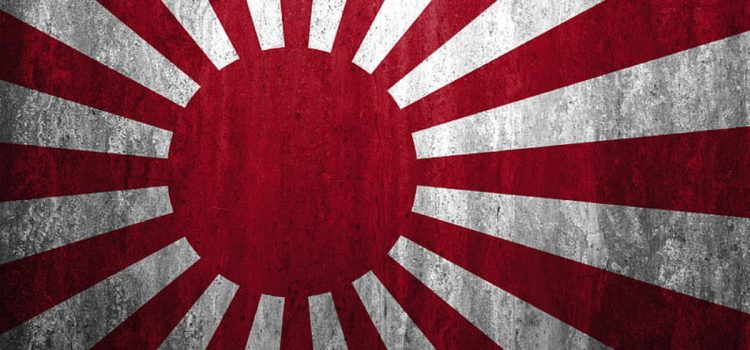
Did J. Robert Oppenheimer support the use of the atomic bomb? Did he ever change his mind?
In American Prometheus, Kai Bird and Martin Sherwin provide a comprehensive biography of J. Robert Oppenheimer, best known for developing the atomic bomb that wrought destruction on Japan in World War II. They discuss his arguments for the permissibility of bombing Japan and his attitude afterward.
Keep reading to learn about the views of J. Robert Oppenheimer on Japan’s fate in the war.
J. Robert Oppenheimer on Japan
For J. Robert Oppenheimer, Japan provided two life-changing moments. As he began his academic career, he became increasingly politically active. As Bird and Sherwin argue, Oppenheimer consistently supported progressive causes throughout the 1930s. His interest in a broad range of progressive causes, from labor unions to the Spanish revolution, was upended by one event: Japan’s bombing of Pearl Harbor in December 1941. Rather than continue investing in these causes, Oppenheimer shifted his focus singularly toward the impending war with Germany and the other Axis powers (Japan and Italy).
(Shortform note: Oppenheimer’s response to the bombing of Pearl Harbor was shared by the vast majority of Americans. Indeed, experts argue that Pearl Harbor was a uniquely unifying moment in American history, as it united Americans against a common enemy that threatened to destroy the US altogether. For this reason, the Senate even voted unanimously to declare War against Japan, a rare act of consensus across party lines.)
Fast forward to July 16, 1945—about three months after Hitler committed suicide and Germany surrendered. A successful test of the atomic bomb, known as Trinity, took place with the Manhattan Project’s scientists watching. Bird and Sherwin relate that, even before Trinity displayed the atomic bomb’s might, the US military was considering using the bombs on Japan, the final Axis power standing in World War II. Moreover, they note that Oppenheimer actively supported the decision to use the atomic bomb against Japan and even acquiesced to the military’s proposed targeting of civilians.
The clearest statement of Oppenheimer’s views, they write, stems from the Scientific Panel’s June 1945 memorandum to the Interim Committee (a military group advising the secretary of war). In this memorandum, Oppenheimer explicitly endorsed the military use of the bomb against Japan. He reasoned that one decisive bombing of Japan could serve as an effective deterrent against all future wars, thus justifying the bombing.
| Oppenheimer’s Consequentialist Argument and the Ethics of War Although Oppenheimer’s argument for bombing Japan may seem questionable, it has some basis in ethical philosophy. His argument depends upon the notion that the end (deterring all future wars) justifies the means (bombing innocent citizens). In ethics, this principle corresponds to consequentialism, the theory that actions are made right or wrong by their consequences alone. So, for example, lying to your spouse might be morally permissible if it makes them happier than telling them the truth. But, applying consequentialist theories to wartime ethics can lead to unappealing conclusions. For example, some philosophers have pointed out that, if torturing innocent children of enemy terrorists would provide information on terrorists’ whereabouts and save lives, then consequentialist theories must admit it’s morally permissible to torture them. In a similar vein, consequentialist theories allow for the possibility that sexual violence against innocent citizens could be justified, if these acts of violence cause the enemy to surrender more quickly. Admittedly, some consequentialists aim to avoid these implications by focusing on the consequences of broader rules, rather than specific acts. For example, they might argue that instituting rules against (say) torture and sexual violence in wartime is justified because these rules have the best consequences in the long run—even if, in individual instances, violating these rules seems to have better consequences. In other words, a consequentialist could argue that a rule against bombing innocent civilians, even to deter future wars, has better consequences than the rule that permits bombing innocent civilians as a deterrent. For this reason, consequentialists could still reject Oppenheimer’s argument for bombing Japanese civilians. |
However, Oppenheimer differed from the military when it came to cooperating with foreign powers. Bird and Sherwin point out that, along with his other panel members, Oppenheimer urged transparency with other international powers—including the Soviet Union. He reasoned that secrecy about the US’s nuclear weapons could spark a deadly arms race and that radical candor was the best route to avoiding this arms race.
(Shortform note: Oppenheimer’s proposal for transparency with the Soviet Union was especially radical at the time since the US remained suspicious toward the Soviets despite fighting alongside them in World War II. In particular, the US government and public were concerned about the Communist Party and Premier Joseph Stalin’s despotic regime, which US politicians viewed as a potential threat post World War II.)
Japan’s Desire to Surrender
Though Oppenheimer supported using the bomb against Japan, he lacked access to crucial information that, Bird and Sherwin suggest, might have changed his mind. In particular, Oppenheimer didn’t know that Japan was on the verge of surrendering, assuming agreeable terms of surrender could be reached.
Bird and Sherwin note that this fact is now well-known by historians. By May 1945, the US military had intercepted messages from Japan that expressed a desire to surrender on fair terms. For this reason, high-ranking military officials in Washington were actively discussing ways to induce a Japanese surrender. In July 1945, President Truman even acknowledged in his private journal that, according to US intelligence, Japan was actively seeking peace with the Allied forces.
(Shortform note: The lack of public awareness about Japan’s explicit desire to surrender might explain why such a large proportion of the US public approved of the decision to bomb Japan. In 1945, just after the bombing, 85% of Americans surveyed responded that they supported the decision to bomb Japan. However, this support dropped over time, with only 57% of Americans in 2005 responding that they approved of the decision in hindsight.)
The Aftermath of the Atom Bomb
Despite intelligence about Japan’s desire to surrender, President Truman chose to use the atomic bomb on Japan, bombing Hiroshima on August 6, 1945, and Nagasaki on August 9. According to Bird and Sherwin, Oppenheimer’s initial reaction to the bombings was ambivalent; he proudly congratulated his team following the first bombing, but friends report him consumed with qualms. In turn, Oppenheimer became an increasingly outspoken advocate for nuclear regulation after the bombing, earning him powerful political opponents who sought to excommunicate him.
Following the bombings in Hiroshima and Nagasaki, Oppenheimer became increasingly vocal about atomic policy. As Bird and Sherwin relate, Oppenheimer’s proposed nuclear policy had two primary recommendations: The world should create an international commission to regulate nuclear weapons and scientists from all countries should speak freely with one another.
Although Oppenheimer became an outspoken advocate of nuclear regulation, Bird and Sherwin maintain that he failed to successfully influence US nuclear policy.

———End of Preview———
Like what you just read? Read the rest of the world's best book summary and analysis of Kai Bird and Martin Sherwin's "American Prometheus" at Shortform.
Here's what you'll find in our full American Prometheus summary:
- The biography of J. Robert Oppenheimer that inspired the movie Oppenheimer
- Oppenheimer's early life and mental health struggles
- Oppenheimer's role in developing the atomic bomb and the following hearing






